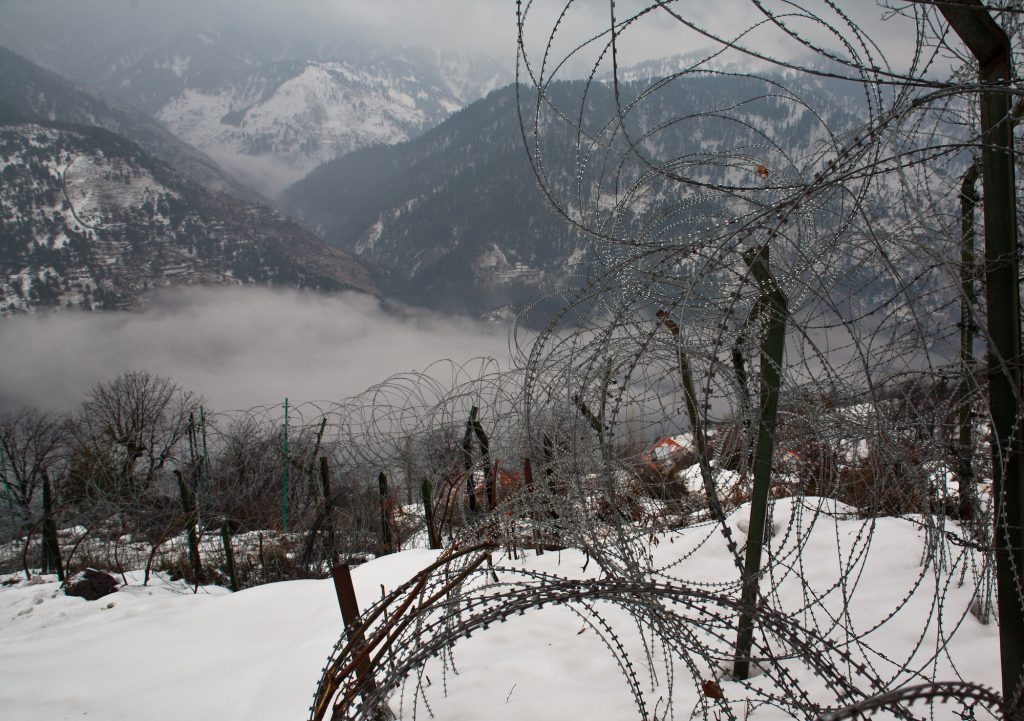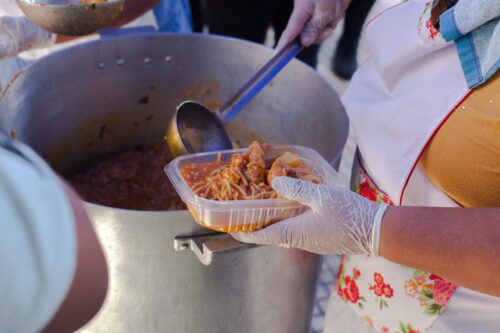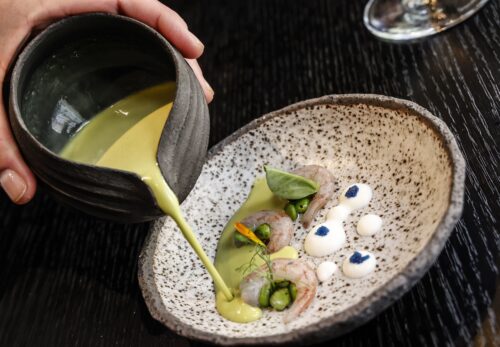i. will. cross.

I wrote my poem “i. will. cross.” at a site called the Line of Control, the ceasefire line that exists as a de facto border between Indian- and Pakistani-administered Kashmir. One of the world’s most densely militarized frontiers, the Line of Control is so heavily surveilled that it is even visible from space.
The people living around the Line of Control suffer because families and communities have been bifurcated since 1947. Since 1989, when the resistance movement against Indian rule began, the situation has been grave. More than 100,000 people, both combatants and noncombatants, have been killed in the Indian counterinsurgency operations. Crossing the Line of Control is illegal and dangerous, and many young Kashmiri militants have been killed while trying to do so.
As a poet-anthropologist, I see my role as being “akin to holding a wound—a wound that is simultaneously in the body of the other” and reflected in mine. I describe this further in my book Resisting Disappearance: Military Occupation and Women’s Activism in Kashmir. A poem can reach into the spaces where bearing witness pours beyond the borders of “objective” observation—where reason seeks to escape measured words and emotional constraints.
I am a native Kashmiri based in the U.S., and I’ve been working in Kashmir as an anthropologist for more than a decade. I wrote my poem during fieldwork at the Line of Control. As a type of “autoethnographic” poem, this piece embodies the viewpoint of a Kashmiri militant who intends to cross the Line of Control. As a lover of azadi, or freedom and independence, he pursues what Kashmiris have been clamoring for over the last 72 years.
i. will. cross.
my love,
i am at the line of control—
inching—
tonight, the moon is graying
the darkness—perfecting itself
or so I hope—
the breeze is weakening
like the old tyrant’s hand
i. will. cross.
my love
senses are crammed—
bright, blinding searchlights, again—
i might as well be visible from space
barbed wires, drones, electric fences,
empty bottles of liquor. i taste blood.
guns, lights, smoke.
coughing, cursing, soldiers, dogs—
and
I see the dark beauty of our moonlit meadows
your perfume on the other side is a paradise
i. will. cross.
my love
waiting to hold you has been such a joy
how many lines will i have to cross?
or infiltrate, as they say?
i mind no more—
i. will. cross.
my love,
i fear this year’s snow will again be sparse
our thirst will only grow, i should not wait
i am a lover who is labeled a terrorist anyway
i. will. cross.
my love,
i will always be in love
with your wadiyan
[1]
[1]
valleys
your wildflowers. your wilderness.
and winds that say my name.
and your waterfalls.
wading in growing puddles of blood
i. will. cross.
i. will. cross.
i. will. cross.

























